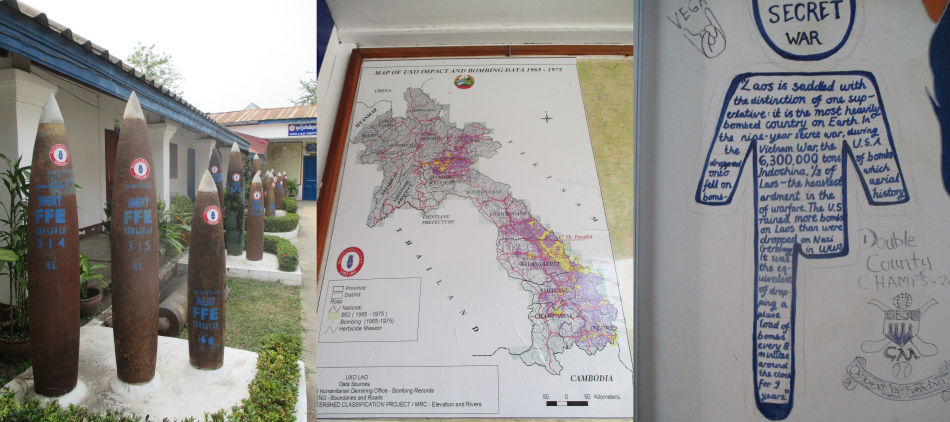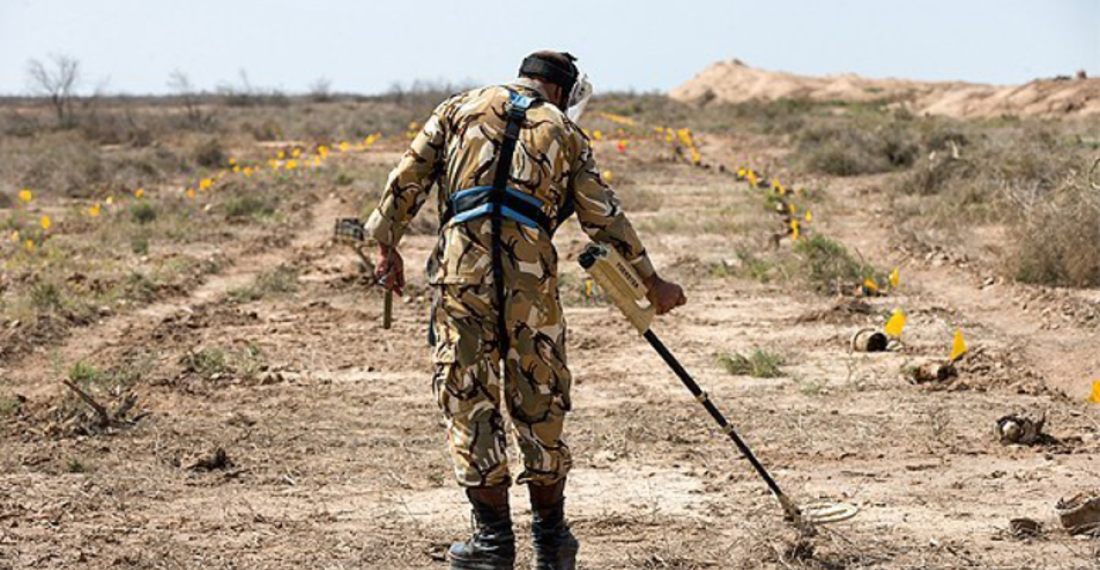"The International Day for Mine Awareness and Assistance in Mine Action on 4 April seeks to bring to the world’s attention the areas of the planet which, sometimes even decades after the end of the conflict and despite years of work already having been undertaken, still are affected by landmines and ERWs," writes Patrick Norén in this op-ed for commonspace.eu. Landmines will not "magically disappear of their own accord. They will not evaporate into thin air. No matter how many years pass, they will continue to kill and injure innocent people until we decide that enough is enough, and that it is time to rid the world, once and for all, of this scourge. Mine action cannot wait."
Marked every year since 2006, 4 April marks the International Day for Mine Awareness and Assistance in Mine Action. With as many as 67 countries and territories still being affected by the scourge of landmines in 2023, it is a problem that continues to affect hundreds of millions of people around the world and has left very few corners of the planet untouched.
But before one starts studying the devastating consequences of landmines, it is important to appreciate that landmines themselves are only half of the story. Years and sometimes decades of conflict frequently leave behind swathes of unexploded ordnance, or more formally known as explosive remnants of war (ERWs), among which cluster munitions are of particularly serious concern. These are weapons consisting of a container that opens in the air and scatters large numbers of submunitions, or “bomblets”, over a wide area.
Depending on the model, the number of submunitions in any given cluster bomb can be as high as 600, but, according to credible estimates, as many as 10-40% of these submunitions fail to detonate on impact as intended, leaving behind a pernicious, explosive legacy that continues to kill and seriously injure long after the war is over.
There are indeed global treaties banning both anti-personnel landmines and cluster munitions, namely the 1997 Ottawa Convention and the 2010 Oslo Convention, respectively. While the former has 164 state parties, and the latter has fewer, at 111, not all parties adhere to these international frameworks.
Almost five children are killed by landmines and ERWs around the world every day
Grim casualty statistics reveal only a small part of the destruction wrought by landmines globally. According to the 2022 Landmine Monitor report, around the world in 2021, at least 5,544 landmine/ERW casualties were recorded, of which 2,182 were killed and 3,355 were injured. The survival status of seven casualties is unknown.
Children are disproportionately affected by landmines and ERWs, often unable to read signs warning of minefields or mistaking mines or ERWs for toys. In the cases where the age of the victim was known, according to the 2022 Landmine Monitor report, children accounted for half of all civilian landmine/ERW casualties in 2021, at 1,696.
To paraphrase the words of former President of Chile and UN High Commissioner for Human Rights Michelle Bachelet, this means that, in 2021, almost five children born into peace were killed by war every single day.
But the consequences of landmines and ERWs do not stop at physical injury or death. Among survivors, the overwhelming majority go on to suffer mental health problems including post-traumatic stress disorder, depression, and anxiety. Families are torn apart as adults are left unable to work and provide, and children have their futures irreparably damaged.
The continued presence of landmines and ERWs has much greater consequences for communities and entire countries too. Very frequently vast areas of land are rendered completely unusable, whether it be for building homes or starting businesses, or for growing food or conservation. The disruption to global food supply chains and fears of worldwide shortages that ensued after Russia’s 2022 full-scale of invasion of Ukraine, which is one the world’s biggest exporters of wheat and the world’s largest producer of sunflower oil, has focused international attention on the importance of returning land contaminated with landmines and ERWs to economic use as fast as possible.

The fact that landmines and ERWs disproportionately affect poorer countries, where education is lacking, healthcare is inadequate, and large parts of society often live rural and agrarian lifestyles, makes this problem for some countries even more acute. This year, the UN’s Mine Action Service will especially highlight the plight of Vietnam, Cambodia and Laos, the latter of which is one of the poorest countries in East Asia, has a rural population of roughly 60%, and bears the unfortunate title of being the most heavily bombed country in the world per capita.
For countries such as these, landmines and ERWs are not some mild irritant that pops up every now and again to be treated as and when required. They represent an existential barrier to the sustainable development of some of the most vulnerable and disadvantaged communities on the planet, whose livelihoods are limited by sometimes decades-old legacies of war. From the deserts of Yemen to the jungles of Laos, from the fields of Ukraine to the savannahs of Angola, landmines and ERWs are a scourge that not only wrecks lives, but prevents entire countries from developing themselves and contributing to a safer, happier, more prosperous planet for everybody.
Mine action cannot wait
But words, promises, declarations and even treaties are not enough. Of the 50 countries and territories that saw landmine and ERW incidents in 2021, 36 are parties to the Ottawa Convention banning anti-personnel landmines. For the world to see real progress on landmine and ERW clearance, genuine political will and real action is required. For as long as governments drag their feet and funding is limited, innocent civilians will continue to be killed by landmines and ERWs every single day, needlessly robbing the rest of us of the bright minds and strong hands necessary to take our world forward into a better future.
The International Day for Mine Awareness and Assistance in Mine Action on 4 April seeks to bring to the world’s attention the areas of the planet which, sometimes even decades after the end of the conflict and despite years of work already having been undertaken, still are affected by landmines and ERWs.
They will not magically disappear of their own accord. They will not evaporate into thin air. No matter how many years pass, they will continue to kill and injure innocent people until we decide that enough is enough, and that it is time to rid the world, once and for all, of this scourge. Mine action cannot wait.







